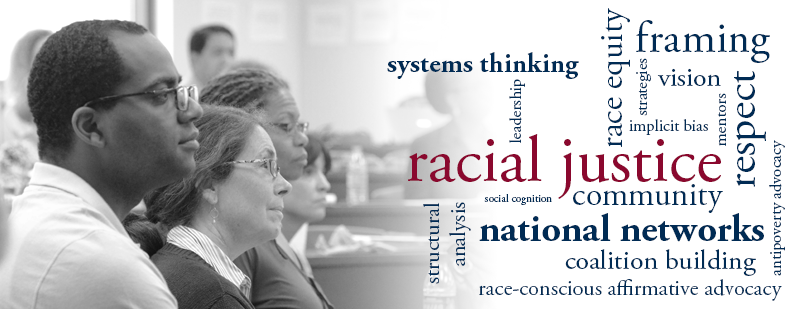News You Can USe
1/17/19
Racial Justice
Introduction Letter:
Minister for Racial Justice; Velda Love
The Christian Church is the catalyst for addressing historical and contemporary issues regarding the intersections of race and racism that continues to harm communities of color. The United Church of Christ acknowledges and supports the equality of all humans. In 1993, The Nineteenth General Synod called upon UCC congregations in all its settings to be a true multiracial and multicultural church. Twenty-five years later the call continues to go forth.
The call to be a multiracial and multicultural church is an acknowledgement that racial justice is the inclusiveness of all humans and never excludes anyone based on skin color, culture or ethnic origin. The United Church of Christ stands in solidarity with the creation narrative in Genesis 1:26-27, which clearly outlines what matters to God—all of humankind and a just world for all. God created humankind in God’s image and likeness, women and men are image bearers, sharing equal status as human beings. God did not create race, racism, superior groups of humans, and hierarchical and hegemonic social structures. God does not sanction human suffering including America’s involvement in--
The Gates of Justice are open for Dismantling and Eradicating Racism
Visit our website: www.ucc.org/justice_issues
For more information contact: Velda Love, Minister for Racial Justice
(216) 736-3719
Racial Justice
Introduction Letter:
Minister for Racial Justice; Velda Love
The Christian Church is the catalyst for addressing historical and contemporary issues regarding the intersections of race and racism that continues to harm communities of color. The United Church of Christ acknowledges and supports the equality of all humans. In 1993, The Nineteenth General Synod called upon UCC congregations in all its settings to be a true multiracial and multicultural church. Twenty-five years later the call continues to go forth.
The call to be a multiracial and multicultural church is an acknowledgement that racial justice is the inclusiveness of all humans and never excludes anyone based on skin color, culture or ethnic origin. The United Church of Christ stands in solidarity with the creation narrative in Genesis 1:26-27, which clearly outlines what matters to God—all of humankind and a just world for all. God created humankind in God’s image and likeness, women and men are image bearers, sharing equal status as human beings. God did not create race, racism, superior groups of humans, and hierarchical and hegemonic social structures. God does not sanction human suffering including America’s involvement in--
- Enslavement, social isolation and surveillance
- Genocide and inhumane social confinement
- Global confiscation of another cultures land and resources
- Human trafficking and forced sexual slavery
- Deportation and the separation of families
- Militarization and the intentional murder of people of color
- Using global armaments on innocent civilians domestically and abroad
- Discrimination towards other faith communities
The Gates of Justice are open for Dismantling and Eradicating Racism
Visit our website: www.ucc.org/justice_issues
For more information contact: Velda Love, Minister for Racial Justice
(216) 736-3719

“Lo, how a Rose e’er blooming, from tender stem hath sprung!
Of Jesse’s lineage coming, as saints of old have sung.
It came a floweret bright, amid the cold of winter,
When half-spent was the night.”
Dear Friends,
I have always loved this mournful carol of promise for its naming of how God fashions beauty and hope in the most unlikely of places. The rose pictured here has been on my phone’s opening screen for most of this past year. It carries special meaning for me as it was part of funeral spray for one of my greatest teachers. His name was Aidan Carter. Aidan was the only person in my ministry for whom I was present the day of his birth, celebrated his baptism, journeyed with him in life and in confirmation and then was with him and his family on the day of his death.
All year long, in this season of transition in my life, I have been reminded of God’s remarkable capacity to bring light and life out of the place of darkness and loss. Though Aidan was blinded by a tumor on his optic nerve caused by neurofibromatosis, he possessed twenty-twenty vision of the heart. He could see the possibilities which love could fashion in even the most challenging of circumstances. He taught me about the power of God to fashion an ever-new creation in the least likely of places and with the most unlikely people.
Maybe you have known someone like this in your own life who, despite the apparent limitations of their situation, have been touched by a spirit larger than that which can be seen with the eye. And empowered by that Spirit have a capacity to grow joy and hope where it seems that nothing should be able to flourish.
These days, there is much around us that seems to crush the possibility of a rose blooming in winter. Children are still separated from their parents, those fleeing terror are still being met by walls of resistance, teenagers are still giving birth in a season of their lives that is unexpected and not ideal. There is much uncertainty for many in ways that are too numerous to name. But it is, of course, into this very kind of brokenness and fear that God pivoted the universe toward hope with the birth of Jesus. There is nothing of the protection of royalty, just an entrance into the vulnerable place. It is a place Jesus occupied throughout his whole life mission. But he did not occupy it alone. For this is the place where God fashioned and continues to fashion a blossoming in love that cannot be defeated.
So, we are given the gift of these Advent days, these hours of eager waiting. And we are given the gift of Christmas to celebrate God’s inbreaking power to shift everything we think we know. May this unfolding narrative of God’s inbreaking find its way into the deepest place of your heart and your life. May it empower the faith communities of which you are a part. May it be the energy that binds us congregation to congregation and ministry to ministry throughout the Conference and into the wider world. And may this vision where all may flourish find a heart song that goes something like this, “Gloria, in excelsis, Deo”! Yes! Yes! Yes! The rose blooms in winter! Let us behold it together! I give thanks to God for you and pray God’s blessings on the ministry to which we are called together!
May Advent blessings and Christmas Joy be yours!
Your fellow servant, Dave.
Rev. David Long-Higgins
Transitional Conference Minister
Of Jesse’s lineage coming, as saints of old have sung.
It came a floweret bright, amid the cold of winter,
When half-spent was the night.”
Dear Friends,
I have always loved this mournful carol of promise for its naming of how God fashions beauty and hope in the most unlikely of places. The rose pictured here has been on my phone’s opening screen for most of this past year. It carries special meaning for me as it was part of funeral spray for one of my greatest teachers. His name was Aidan Carter. Aidan was the only person in my ministry for whom I was present the day of his birth, celebrated his baptism, journeyed with him in life and in confirmation and then was with him and his family on the day of his death.
All year long, in this season of transition in my life, I have been reminded of God’s remarkable capacity to bring light and life out of the place of darkness and loss. Though Aidan was blinded by a tumor on his optic nerve caused by neurofibromatosis, he possessed twenty-twenty vision of the heart. He could see the possibilities which love could fashion in even the most challenging of circumstances. He taught me about the power of God to fashion an ever-new creation in the least likely of places and with the most unlikely people.
Maybe you have known someone like this in your own life who, despite the apparent limitations of their situation, have been touched by a spirit larger than that which can be seen with the eye. And empowered by that Spirit have a capacity to grow joy and hope where it seems that nothing should be able to flourish.
These days, there is much around us that seems to crush the possibility of a rose blooming in winter. Children are still separated from their parents, those fleeing terror are still being met by walls of resistance, teenagers are still giving birth in a season of their lives that is unexpected and not ideal. There is much uncertainty for many in ways that are too numerous to name. But it is, of course, into this very kind of brokenness and fear that God pivoted the universe toward hope with the birth of Jesus. There is nothing of the protection of royalty, just an entrance into the vulnerable place. It is a place Jesus occupied throughout his whole life mission. But he did not occupy it alone. For this is the place where God fashioned and continues to fashion a blossoming in love that cannot be defeated.
So, we are given the gift of these Advent days, these hours of eager waiting. And we are given the gift of Christmas to celebrate God’s inbreaking power to shift everything we think we know. May this unfolding narrative of God’s inbreaking find its way into the deepest place of your heart and your life. May it empower the faith communities of which you are a part. May it be the energy that binds us congregation to congregation and ministry to ministry throughout the Conference and into the wider world. And may this vision where all may flourish find a heart song that goes something like this, “Gloria, in excelsis, Deo”! Yes! Yes! Yes! The rose blooms in winter! Let us behold it together! I give thanks to God for you and pray God’s blessings on the ministry to which we are called together!
May Advent blessings and Christmas Joy be yours!
Your fellow servant, Dave.
Rev. David Long-Higgins
Transitional Conference Minister
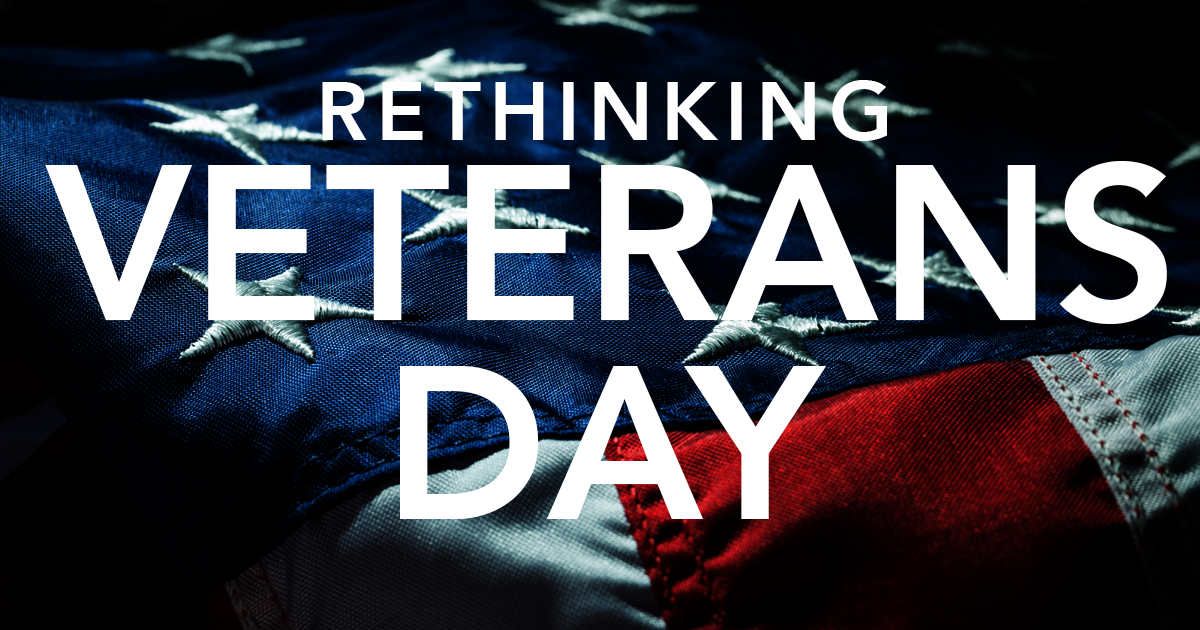
Posted November 8, 2018
November 03, 2017
Written by Connie LarkmanThree ministers with military ties, noting the upcoming Nov. 11 holiday, are encouraging congregations to 'Rethink Veterans Day,' and find ways as a faith community to care for our service members on Veterans Day and every day.
"From my first days as a chaplain with military service members and their families, I recognized that faith communities had an integral role to play in the post-deployment re-entry and re-integration," said the Rev. Zachary Moon, an assistant professor of Practical Theology at Chicago Theological Seminary. "Processing the complex experiences of military service and the impact on families takes time — and our faith communities are uniquely capable of making this journey of transition into the next chapters of life."
That is why Moon partnered with the Rev. Stephen B. Boyd, UCC Minister for Chaplains and Ministers in Specialized Settings to offer a workshop for congregations which want be more effective in welcoming veterans into their communities; to guide a process of healing and wholeness, rather than simply thanking a veteran for their service. Information on the workshops on Nov. 8, in Burlington, Wisc., and Nov. 10 at Chicago Theological Seminary (CTS) can be found here. The CTS workshop can also be accessed via livestream.
"We hope to equip congregations with resources and a way of thinking, doing Veterans Day and Memorial Day differently," said Boyd. "We, as veterans, have so often been a part of those worship services where they ask the veterans to stand, maybe sing a patriotic hymn and then go on to the business of Sunday worship. We are working to create a whole worship service that celebrates veterans and attempts to show how issues can be spoken to directly, addressing the real men and women who have served."
"Congregations can support their 'sons and daughters' with prayer, letters, in addition to offering a special liturgy on days like Veteran's Day, Memorial Day," said the Rev. John Schluep, a UCC minister, former Army Captain, and founder of Warriors' Journey Home, an organization dedicated to helping veterans and their families adjust to life for the returning service member.
A retired pastor of First Congregational Church of Tallmadge, Ohio, Schluep said it is important to focus on "a supportive embrace of the service person," not nationalism or patriotism. "We disagree with the conflict, but support those who have served in it, in a good way."
Military service can mean a lot of different things to each individual, Schluep noted, so the ability to listen, without judgement, is also critical.
"Provide a time for veterans to tell their story and listen without judgment, comment, criticism, or endorsement," Schluep said. "The Warriors' Journey Home mantra is 'Listen — Speak — Heal.' Listen with an open heart. The church needs to find a way to deal with the moral injury of war with our members. A lot of people have done things that aren't very nice. There has to be opportunities for forgiveness, for reconciliation."
"Many churches sincerely wish to do more effective ministry with veterans and military families, but very few have invested in the relational work to make that happen," Moon said. "The most effective congregational works are service oriented projects. Folks in the military care about service and so do most churches I know. If we can see veterans for the leadership and other strengths, rather than as charity-cases, and build on the shared value of service, we can get the whole congregation including veterans serving the community. The journey into the next chapters of life after military service is much better if veterans experience being a part of a team, doing something worth doing, and building trust with others along the way."
"It takes pastoral leadership," Schluep said. "I work with a lot of vets and they feel a disconnect from the churches they grew up in. I think churches need to recognize both the veterans in their midst, and the people of strong heart, the families of the vet, because they deal with those burdens as well."
"One of the main challenges is the veterans feeling safe in going into churches," Boyd said. "This is also the challenge of churches attempting to create a safe place for veterans to be welcomed. I know that more churches would like to support veterans and have programs available, but for most it is a question of where to start.
"Zachary has written a book, Coming Home, Ministry That Matters With Veterans And Military Families, which is a great Bible study for congregations thinking about intentionally doing program around this issue," Boyd continued. "I will be leading a study of the book in my local church after the first of the year. It is a great resource, a very good starting point."
"Being in the military is a spiritual experience," Schluep said. "A kinship community is formed in the military which, in my opinion, is what the church needs to be. Veterans have suffered together. In the military you are taught to take care of the person on your right and the person on your left. The people in the churches who really want to make a difference should aim to replicate that behavior. I think some churches are doing this, but I'd like to see it in greater degrees."
Veterans Day originated as "Armistice Day" on Nov. 11, 1919, the first anniversary of the end of World War I. Congress passed a resolution in 1926 for an annual observance, and Nov. 11 became a national holiday beginning in 1938. In 1954, after lobbying efforts by veterans' service organizations, the 83rd U.S. Congress amended the 1938 act that had made Armistice Day a holiday, striking the word "Armistice" in favor of "Veterans."
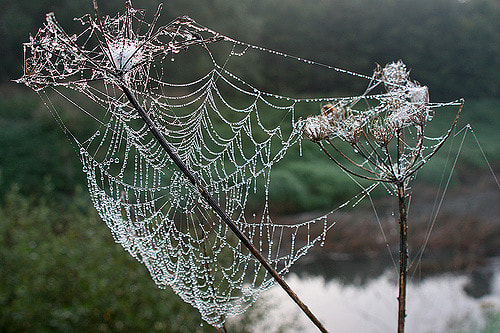
Why is a Website Still Important
10/25/2018
With Twitter, Facebook, Instagram, Spokeo, Linkedin, Google+ just to name a few, why should a church continue its Website? I have currently been asking myself some of the same questions. Recently, I looked at our Website and saw that we are not utilizing it to our full potential. When sharing with the Tech committee they agreed. So I have been on a quest looking at other church and non-profit websites and working to make ours more user friendly and appealing.
I reached out to Bet Hannon who started Affordable Church Website. In 2010, I went to a workshop she hosted at the Kansas Oklahoma Conference. She shared how to often Church Websites become Church Cobweb Sites. Bet Hannon is a contributor to the WordPress open source project through the Support Team. She is also a co-organizer of her local WordPress Meetup (user group). Bet also occasionally presents workshops and webinars for church, nonprofit and small business groups. Bet gave me some tips on how to increase traffic to our website. Everything we do should draw folks back to our website. The more people click on links that bring them to our website, the more the website climbs in prominence in the search engine.
She suggested to link our articles on the Belfry back to our page and post a church Blog. "When churches begin to use constant contact often they utilize it as another newsletter. By linking them back to your page people begin to learn about all the ways your church is doing mission" Bet Hannon shared with me. So now when you read the Belfry, there will be links drawing you back to our website. This is the best practice that the Ohio Conference, Eastern Ohio and Western Reserve Association and many other groups employ to bring traffic to their website and keeping it current.
10/25/2018
With Twitter, Facebook, Instagram, Spokeo, Linkedin, Google+ just to name a few, why should a church continue its Website? I have currently been asking myself some of the same questions. Recently, I looked at our Website and saw that we are not utilizing it to our full potential. When sharing with the Tech committee they agreed. So I have been on a quest looking at other church and non-profit websites and working to make ours more user friendly and appealing.
I reached out to Bet Hannon who started Affordable Church Website. In 2010, I went to a workshop she hosted at the Kansas Oklahoma Conference. She shared how to often Church Websites become Church Cobweb Sites. Bet Hannon is a contributor to the WordPress open source project through the Support Team. She is also a co-organizer of her local WordPress Meetup (user group). Bet also occasionally presents workshops and webinars for church, nonprofit and small business groups. Bet gave me some tips on how to increase traffic to our website. Everything we do should draw folks back to our website. The more people click on links that bring them to our website, the more the website climbs in prominence in the search engine.
She suggested to link our articles on the Belfry back to our page and post a church Blog. "When churches begin to use constant contact often they utilize it as another newsletter. By linking them back to your page people begin to learn about all the ways your church is doing mission" Bet Hannon shared with me. So now when you read the Belfry, there will be links drawing you back to our website. This is the best practice that the Ohio Conference, Eastern Ohio and Western Reserve Association and many other groups employ to bring traffic to their website and keeping it current.
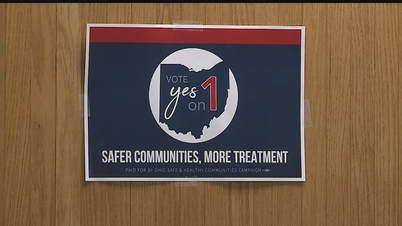
UCC speaks out in support of Ohio Issue 1
October 02, 2018
Written by Connie Larkman
The United Church of Christ, which has long advocated for criminal justice reform and against mandatory minimums for non-violent drug offenses, is endorsing an effort in Ohio that would send fewer people to prison for drug possession and use, while redirecting dollars saved into providing more treatment for people suffering from addiction.With the UCC National Offices headquartered in Cleveland, the denomination’s General Minister and President is speaking out for State Issue 1, "The Neighborhood Safety, Drug Treatment, and Rehabilitation Amendment." The measure, if passed in November, would make the possession, obtainment and use of illegal drugs a misdemeanor in some cases. There would also be no jail-time attached to drug sentences for first and second time offenders within a 24-month period.
“The long held belief that mass incarceration of non-violent offenders is a pathway to rehabilitation is a costly delusion that ruins lives, fosters recidivism, and lines the pockets of private prison owners. I am happy to support Issue 1 as a pathway to a more sane approach to our drug problems in this country,” said the Rev. John C. Dorhauer. “The United Church of Christ, which last year passed a resolution responding to the evil of mass incarceration, sees this as an important and necessary next step in the re-building of a criminal justice system that doesn’t ignore the call of justice."
The United Church of Christ joins the American Civil Liberties Union of Ohio in declaring support for the amendment to the Ohio Constitution which will reduce the number of people in state prison and reinvest the savings to drug treatment programs and community services.
“Ohio has tried for decades to incarcerate its way out of its drug problem,” said the Rev. J. Bennett Guess, Executive Director of the ALCU of Ohio. “The result has been one of the nation’s largest prison populations and highest rates of drug addictions. It hasn’t worked. Mass incarceration is not drug treatment. It’s time for a new approach.”
The initiative on the November ballot decriminalizes certain fourth and fifth degree drug possessions from felonies to misdemeanors; rewards rehabilitation that allows those incarcerated to collect credits to reduce their sentence; and redirects money from prisons into local communities.
“Issue 1, above all, is a moral issue,” Guess continues, “because it redirects money now being spent on prisons and reinvests those dollars in community treatment services, and ends the cruel practice of saddling people with unnecessary felony records that can ruin their lives.”
Policy analysts estimate that the passage of Issue 1 would free up $136 million per year, and the initiative requires that those funds be reallocated to community needs, public safety, and addiction treatment.
“Issue 1 also incentivizes treatment, because those in prison can earn credits toward shortened sentences if they participate in education, behavior and treatment programs – programs that will be more readily available than they are now.”
A number of other faith groups are also endorsing the measure, but the UCC is the first mainline denomination to speak out in support of Issue 1.
October 02, 2018
Written by Connie Larkman
The United Church of Christ, which has long advocated for criminal justice reform and against mandatory minimums for non-violent drug offenses, is endorsing an effort in Ohio that would send fewer people to prison for drug possession and use, while redirecting dollars saved into providing more treatment for people suffering from addiction.With the UCC National Offices headquartered in Cleveland, the denomination’s General Minister and President is speaking out for State Issue 1, "The Neighborhood Safety, Drug Treatment, and Rehabilitation Amendment." The measure, if passed in November, would make the possession, obtainment and use of illegal drugs a misdemeanor in some cases. There would also be no jail-time attached to drug sentences for first and second time offenders within a 24-month period.
“The long held belief that mass incarceration of non-violent offenders is a pathway to rehabilitation is a costly delusion that ruins lives, fosters recidivism, and lines the pockets of private prison owners. I am happy to support Issue 1 as a pathway to a more sane approach to our drug problems in this country,” said the Rev. John C. Dorhauer. “The United Church of Christ, which last year passed a resolution responding to the evil of mass incarceration, sees this as an important and necessary next step in the re-building of a criminal justice system that doesn’t ignore the call of justice."
The United Church of Christ joins the American Civil Liberties Union of Ohio in declaring support for the amendment to the Ohio Constitution which will reduce the number of people in state prison and reinvest the savings to drug treatment programs and community services.
“Ohio has tried for decades to incarcerate its way out of its drug problem,” said the Rev. J. Bennett Guess, Executive Director of the ALCU of Ohio. “The result has been one of the nation’s largest prison populations and highest rates of drug addictions. It hasn’t worked. Mass incarceration is not drug treatment. It’s time for a new approach.”
The initiative on the November ballot decriminalizes certain fourth and fifth degree drug possessions from felonies to misdemeanors; rewards rehabilitation that allows those incarcerated to collect credits to reduce their sentence; and redirects money from prisons into local communities.
“Issue 1, above all, is a moral issue,” Guess continues, “because it redirects money now being spent on prisons and reinvests those dollars in community treatment services, and ends the cruel practice of saddling people with unnecessary felony records that can ruin their lives.”
Policy analysts estimate that the passage of Issue 1 would free up $136 million per year, and the initiative requires that those funds be reallocated to community needs, public safety, and addiction treatment.
“Issue 1 also incentivizes treatment, because those in prison can earn credits toward shortened sentences if they participate in education, behavior and treatment programs – programs that will be more readily available than they are now.”
A number of other faith groups are also endorsing the measure, but the UCC is the first mainline denomination to speak out in support of Issue 1.

What Gifts Can We Bring?
Fall Stewardship Drive
Hi Folks,
The time for our Fall Stewardship Drive is upon us. This year's theme is, "What Gifts Can We Bring?" which is based on a Hymn that was written in 2003 by composer Jane Marshall. In the hymn it speaks to the many gifts that each of us has been blessed with. This year we will be addressing the gifts we receive from God and the gifts we give in return to the God who has blessed each of us.
Each of us bring gifts with us to church. The gifts are not just monetary, they can be "time", the "talents" that we posses, or even the "things" we own that we choose to share with our community.
We will be doing our Stewardship Drive a little differently this year.
You will receive your letters via: post, Hand Delivered from a member of the Stewardship Committee, and Email. We are utilizing these three different approaches to see which is most meaningful to our congregation. By not mailing all three letters the Stewardship Committee will save an approximate, $70 just on postage. We will not be ordering envelopes either in the effort.
We also provide a survey at the end of the Stewardship Campaign to see which was the best received method. (For those who do not have email we will post the final letter with a survey attached.
So these next coming weeks, think about the gifts you will bring to this congregation.
Fall Stewardship Drive
Hi Folks,
The time for our Fall Stewardship Drive is upon us. This year's theme is, "What Gifts Can We Bring?" which is based on a Hymn that was written in 2003 by composer Jane Marshall. In the hymn it speaks to the many gifts that each of us has been blessed with. This year we will be addressing the gifts we receive from God and the gifts we give in return to the God who has blessed each of us.
Each of us bring gifts with us to church. The gifts are not just monetary, they can be "time", the "talents" that we posses, or even the "things" we own that we choose to share with our community.
We will be doing our Stewardship Drive a little differently this year.
You will receive your letters via: post, Hand Delivered from a member of the Stewardship Committee, and Email. We are utilizing these three different approaches to see which is most meaningful to our congregation. By not mailing all three letters the Stewardship Committee will save an approximate, $70 just on postage. We will not be ordering envelopes either in the effort.
We also provide a survey at the end of the Stewardship Campaign to see which was the best received method. (For those who do not have email we will post the final letter with a survey attached.
So these next coming weeks, think about the gifts you will bring to this congregation.
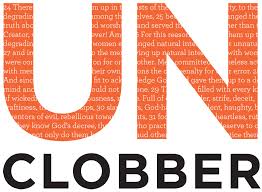
UnClobber: Adult Faith Formation
Churches in America are experiencing an unprecedented fracturing due to their belief and attitude toward the LGBTQ community. Armed with only six passages in the Bible--often known as the "clobber passages"--the traditional Christian position has been one that stands against the full inclusion of our LGBTQ brothers and sisters.
Unclobber reexamines each of those frequently quoted passages of Scripture, alternating with author Colby Martin's own story of being fired from an evangelical megachurch when they discovered his stance on sexuality.
UnClobber reexamines what the Bible says (and does not say) about homosexuality in such a way that breathes fresh life into outdated and inaccurate assumptions and interpretations.
Churches in America are experiencing an unprecedented fracturing due to their belief and attitude toward the LGBTQ community. Armed with only six passages in the Bible--often known as the "clobber passages"--the traditional Christian position has been one that stands against the full inclusion of our LGBTQ brothers and sisters.
Unclobber reexamines each of those frequently quoted passages of Scripture, alternating with author Colby Martin's own story of being fired from an evangelical megachurch when they discovered his stance on sexuality.
UnClobber reexamines what the Bible says (and does not say) about homosexuality in such a way that breathes fresh life into outdated and inaccurate assumptions and interpretations.
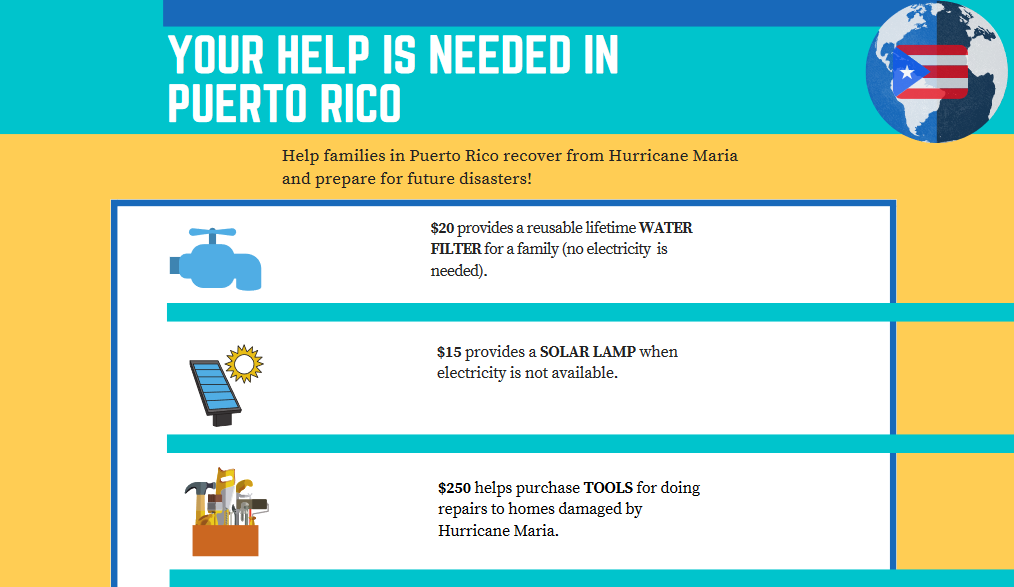
Puerto Rico - UCC Response -
Hurricanes Maria and Irma
Category 5 Hurricane Maria is regarded as the worst natural disaster on record to hit Puerto Rico. It made landfall there on September 20, 2017. Puerto Rico's government has acknowledged that nearly 3,000 people died, more than 60 as a direct result of the hurricane and the rest as a result of the crippling of health care, power, water supply and other systems for months after the storm had passed (Source: CNN, Aug. 29, 2018). Maria followed Hurricane Irma, the most powerful Caribbean hurricane on record, which grazed Puerto Rico on September 6.
Maria caused Puerto Rico up to $95 billion in damage. It wiped out 80 percent of crop values, a blow to the island’s economy that also left its 3.4 million U.S. citizen residents food insecure. Maria knocked out all electricity on the entire island, disrupted water supply, crippled communications systems, damaged roads and littered the island with debris.
"We are supporting our fellow Americans in Puerto Rico and call on all our churches to continue to pray and give financially for what will be a long road ahead," said Zach Wolgemuth, UCC Disaster Ministries Executive.
The UCC's Response
In the year since Hurricane Maria decimated the island of Puerto Rico, the United Church of Christ has accompanied the people of the U.S. territory in their journey toward recovery. UCC Disaster Ministries has invested almost a half million dollars in the rebuilding effort, and coordinated the scheduling and management of scores of local church volunteers from around the country. Just as important, the UCC has offered the much-appreciated support of presence, from both clergy and national executives, in Puerto Rican communities.
That immediate assistance and sustaining partnership with the Iglesias Evangelica Unida de Puerto Rico (IEUPR) continues today.
"Since day one after Maria, our local congregations went out to the streets to aid our communities. Although we had very limited resources, we fed the hungry and gave refuge to those that lost everything. Our church was one of the first responders for communities in the mountains that were totally disconnected," said the Rev. Edward Rivera, pastor general of the IEUPR. "The UCC, along with everyone at UCC Disaster Ministries, helped us reach even more people in need. We are forever grateful for their help, support, and time spent here with us."
Disaster Ministries has assisted partners in Puerto Rico with emergency supplies, (generators, water filters, hygiene kits, food, first aid kits and tarps), construction materials, tools, equipment, vehicles and a shipment of medical equipment. They offered preparedness workshops, funds for tuition assistance and pastoral support. Through UCC Partners in Service, Disaster Ministries set up volunteer housing on the island to welcome laborers from dozens of UCC congregations across the U.S. Most of them have been repairing roofs in the communities of Humacao and Yabucoa, on the eastern side of Puerto Rico.
"In collaboration with one of our primary partners, the IEUPR, we will be heavily engaged in home repairs and preparedness work for the foreseeable future but we need more volunteers to help us stretch our resources and reach," said Zach Wolgemuth, Disaster Ministries executive. "To date nearly 40 homes have received repairs and many more are on the waiting list." Disaster Ministries is currently scheduling volunteer opportunities into June of 2019.
"UCC Disaster Ministries is committed to serving alongside our Puerto Rican Sisters and Brothers as long as we are able. We know recovery will take years and our ability for continued engagement will depend upon ongoing donations and financial support," Wolgemuth said. "It is my prayer and hope that as the disaster fades from memories and from the media spotlight that each of us commit to remembering the thousands that lost their lives and the thousands more that are still in need."
Click here for the UCC News story on the one-year anniversary of Hurricane Maria
In addition, on the U.S. mainland, UCC Disaster Ministries has contributed:
Resources provided by FEMA for people in Puerto Rico
Global Ministries' Update on the Caribbean
October webinar with Disciples General Pastor Miguel A. Morales Castro
Hurricanes Maria and Irma
Category 5 Hurricane Maria is regarded as the worst natural disaster on record to hit Puerto Rico. It made landfall there on September 20, 2017. Puerto Rico's government has acknowledged that nearly 3,000 people died, more than 60 as a direct result of the hurricane and the rest as a result of the crippling of health care, power, water supply and other systems for months after the storm had passed (Source: CNN, Aug. 29, 2018). Maria followed Hurricane Irma, the most powerful Caribbean hurricane on record, which grazed Puerto Rico on September 6.
Maria caused Puerto Rico up to $95 billion in damage. It wiped out 80 percent of crop values, a blow to the island’s economy that also left its 3.4 million U.S. citizen residents food insecure. Maria knocked out all electricity on the entire island, disrupted water supply, crippled communications systems, damaged roads and littered the island with debris.
"We are supporting our fellow Americans in Puerto Rico and call on all our churches to continue to pray and give financially for what will be a long road ahead," said Zach Wolgemuth, UCC Disaster Ministries Executive.
The UCC's Response
In the year since Hurricane Maria decimated the island of Puerto Rico, the United Church of Christ has accompanied the people of the U.S. territory in their journey toward recovery. UCC Disaster Ministries has invested almost a half million dollars in the rebuilding effort, and coordinated the scheduling and management of scores of local church volunteers from around the country. Just as important, the UCC has offered the much-appreciated support of presence, from both clergy and national executives, in Puerto Rican communities.
That immediate assistance and sustaining partnership with the Iglesias Evangelica Unida de Puerto Rico (IEUPR) continues today.
"Since day one after Maria, our local congregations went out to the streets to aid our communities. Although we had very limited resources, we fed the hungry and gave refuge to those that lost everything. Our church was one of the first responders for communities in the mountains that were totally disconnected," said the Rev. Edward Rivera, pastor general of the IEUPR. "The UCC, along with everyone at UCC Disaster Ministries, helped us reach even more people in need. We are forever grateful for their help, support, and time spent here with us."
Disaster Ministries has assisted partners in Puerto Rico with emergency supplies, (generators, water filters, hygiene kits, food, first aid kits and tarps), construction materials, tools, equipment, vehicles and a shipment of medical equipment. They offered preparedness workshops, funds for tuition assistance and pastoral support. Through UCC Partners in Service, Disaster Ministries set up volunteer housing on the island to welcome laborers from dozens of UCC congregations across the U.S. Most of them have been repairing roofs in the communities of Humacao and Yabucoa, on the eastern side of Puerto Rico.
"In collaboration with one of our primary partners, the IEUPR, we will be heavily engaged in home repairs and preparedness work for the foreseeable future but we need more volunteers to help us stretch our resources and reach," said Zach Wolgemuth, Disaster Ministries executive. "To date nearly 40 homes have received repairs and many more are on the waiting list." Disaster Ministries is currently scheduling volunteer opportunities into June of 2019.
"UCC Disaster Ministries is committed to serving alongside our Puerto Rican Sisters and Brothers as long as we are able. We know recovery will take years and our ability for continued engagement will depend upon ongoing donations and financial support," Wolgemuth said. "It is my prayer and hope that as the disaster fades from memories and from the media spotlight that each of us commit to remembering the thousands that lost their lives and the thousands more that are still in need."
Click here for the UCC News story on the one-year anniversary of Hurricane Maria
In addition, on the U.S. mainland, UCC Disaster Ministries has contributed:
- $6,000 to the UCC Pennsylvania Southeast Conference for a program of assistance to people displaced from Puerto Rico by Hurricane Maria. Hundreds of people - some of them with few or no resources and many unmet needs - have made their way to Philadelphia, which has the second largest population on the mainland of people of Puerto Rican descent. Penn Southeast Conference Disaster Coordinator Karl Jones has been deployed to lead the UCC's response in Pennsylvania.
Resources provided by FEMA for people in Puerto Rico
Global Ministries' Update on the Caribbean
October webinar with Disciples General Pastor Miguel A. Morales Castro
